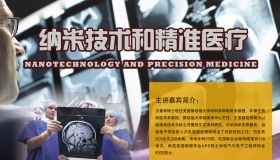【Master Forum】Spintronics: More Than Moore
Subject: Spintronics: More Than Moore
Speaker: Johan Åkerman
Date: July 29, 2016
Time: 15:00-16:00
Venue: Governing Board Meeting Room, Daoyuan Building
Language: English
Speaker Introduction: Johan Åkerman is Professor in Experimental Physics at University of Gothenburg, Guest Professor at KTH Royal Institute of Technology in Stockholm, and founder and CEO of two start-up companies, NanOsc AB and NanOsc Instruments AB. Johan has been working with spintronic technology for the last 15 years and has authored over 200 scientific papers. Johan has a PhD from KTH Royal Institute of Technology, did a postdoc at University of California, San Diego, and was, for four years, responsible for MRAM reliability at Motorola and Freescale Semiconductors, before returning to Sweden and academic research. He is a Fellow of American Physical Society (APS). His main projects are related to spin torque and spin Hall nano-oscillators, with particular focus on magnetodynamical solitons, mutual synchronization, and nano-oscillator neural network based bio-inspired computing.
Lecture Introduction: Compared to the dominant CMOS technology based on the charge to the information carriers, spintronic nano devices rely not only on the electron’s charge but also its spin and is thus believed to be an alternative technology to overcome the hurdle of heat generation and leakage currents on the roadmap beyond conventional CMOS logic. Spintronic devices are already widely used in today’s high capacity hard drives and in the emerging Magnetoresistive Random Access Memory (MRAM). Currently, tremendous research and development efforts have been devoted to spintronic devices known as spin-torque nano-oscillators (STNOs) and spin Hall nano-oscillators (SHNOs), for use in wireless communication, spin transfer torque MRAM (STT-RAM), and for spin wave based computing and even neural networks.
In this talk, the lecturer will give an overview of spintronic technology development in the ‘More than Moore’ domain, with particular focus on the Magnetoresistive Random Access Memory (MRAM) and STNOs/SHNOs.





